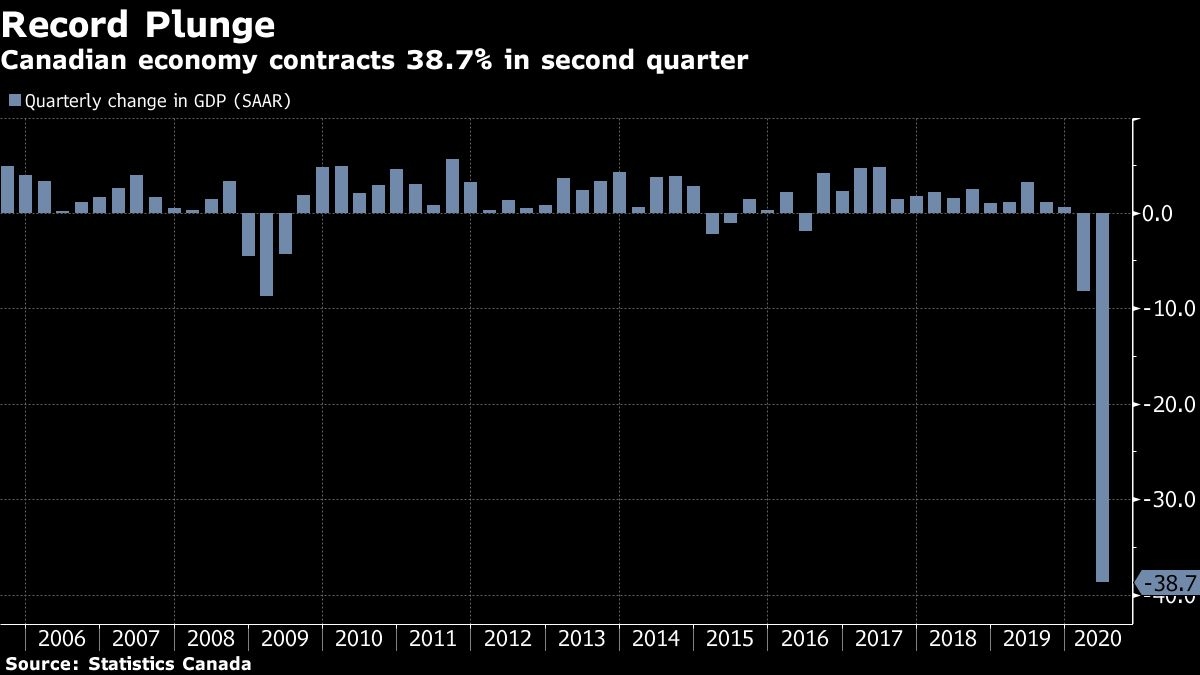Splurging for COVID Rescue
"It raises a very serious question about whether we overdid it.""It's one thing to help people bridge the pandemic because they lost income. But it's another thing to actually make them richer.""In terms of lost income, the appropriate thing is probably to be flat. But certainly not increasing [family income as a pandemic boost]."Jack Mintz, economist, University of Calgary School of Public Policy"Canada was more generous than most other countries in providing quick stimulus.""As the economy improves, ideally, we want to gradually make unemployment benefits less available and less tempting, and build in more incentive to accept to work."Avery Shenfeld, chief economist, CIBC"The fact that $30 billion more went out than was lost raises questions.""Could that money have been used on other aspects of the economic recovery where we might have got greater bang for our buck?"The amount of money we have to spend is finite [as a government, out of the public treasury] and some policies contribute more to economic growth.""When the health aspects are under control, I think we'll see significant economic growth because of pent-up demand."Trevin Stratton, chief economist, Canadian Chamber of Commerce

The OECD released new numbers this week indicating that while Canada's GDP fell by ten percent in the second quarter of the year, household income miraculously grew by 11 percent. It's a different outcome entirely in most other countries, where Germany, France, U.K., and Italy saw household income fall. The difference lies in Canadian households having received greater financial support from government ($56 billion-worth) than was lost in wages and salaries ($23 billion) in the second quarter of 2020, the year of COVID.
Some low-income earners who had lost employment received support payments exceeding their pre-pandemic income levels and not all that money has been invested back into the economy. According to the Bank of Canada's latest monetary policy report, overall savings rate has "significantly" increased. The details become clearer looking at the latest fiscal monitor from the International Monetary Fund, showing Canada with a budget deficit accounting for a fifth of its economy ($350 billion by 2021), representing the largest in the G20.
During the height of the global pandemic in Canada, federal spending on financial supports for Canadian business and taxpayers hugely outpaced what other developed countries saw fit to offer -- to the extent that household incomes saw a rise even as the national economy was in freefall. While incomes in other developed nations including the U.K., France and Germany decreased, Canada's household incomes increased by 11 percent even as the Canadian economy saw over 10 percent contraction in the same period coinciding with strict lockdowns.
Economists muse over what level of fiscal response would have been required to cushion the public in Canada against economic fallout, in the face of the immense scale of the Liberal government's emergency aid spending. The International Monetary Fund had projected Canada's deficit as a percentage of GDP would represent the single largest of any country in 2021, at 19.9 percent. In comparison, the U.S. figure is 18.7 percent, the U.K. 15.4 percent, both expecting to run the next-largest shortfalls.
There is wide agreement between experts that a reasonable level of fiscal support was required, to ensure businesses were kept afloat, and to replace lost income for people facing unemployment, all thanks to the novel coronavirus. Yet economists are in agreement that the federal support programs could have been trimmed back, in an effort to incentivize people not to avoid overspending, and to be willing to get back into the workforce.
A number of emergency programs had been introduced by the government early in the pandemic, measures that saw wide support by businesses and the general public, when the Canada Emergency Response Benefit (CERB) gave the unemployed $2,000 monthly, even as the Canada Emergency Wage Subsidy (CEWS) paid up to 75 percent of employee wages for businesses to keep people employed. Both programs in combination have a price tag of over $150 billion to the end of December.
The United States, according to the OECD report, posted a rise in household incomes in the second quarter at ten percent, due largely to the emergency CARES Act passed in April. The increase, according to the OECD, is likely to be "temporary". Ireland is among other countries posting higher incomes, at 3.6 percent, Australia at 2.7 percent and Finland at 1.1 percent, with Italy seeing a 7 percent drop, and household incomes in the U.K. dropping 3.5 percent.
 |
| Signs against a COVID-19 lockdown placed along Danforth Avenue in Toronto during the pandemic, Friday November 13, 2020 |
Labels: Business Stimulus, Canada, Canadian Unemployed, COVID Financial Supports, IMF, Imprudent Generosity, OECD
0 Comments:
Post a Comment
<< Home